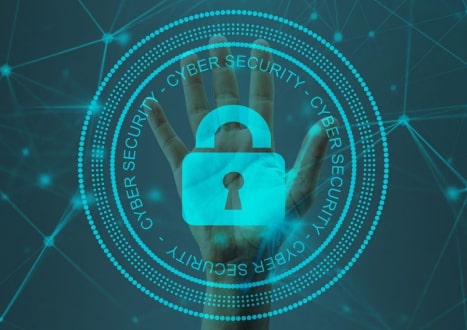- Home
- Video Courses
- Certifications
- 156-215.81.20: Check Point Certified Security Administrator - R81.20 (CCSA) Dumps


156-215.81.20: Check Point Certified Security Administrator - R81.20 (CCSA) Certification Video Training Course
156-215.81.20: Check Point Certified Security Administrator - R81.20 (CCSA) Certification Video Training Course includes 107 Lectures which proven in-depth knowledge on all key concepts of the exam. Pass your exam easily and learn everything you need with our 156-215.81.20: Check Point Certified Security Administrator - R81.20 (CCSA) Certification Training Video Course.
Curriculum for Checkpoint 156-215.81.20 Certification Video Training Course




















156-215.81.20: Check Point Certified Security Administrator - R81.20 (CCSA) Certification Video Training Course Info:
The Complete Course from ExamCollection industry leading experts to help you prepare and provides the full 360 solution for self prep including 156-215.81.20: Check Point Certified Security Administrator - R81.20 (CCSA) Certification Video Training Course, Practice Test Questions and Answers, Study Guide & Exam Dumps.
CCSA Exam 156-215.81.20 – Check Point Certified Security Administrator
Course Overview
Introduction to the Check Point Certified Security Administrator Exam
The Check Point Certified Security Administrator exam code 156-215.81.20 is one of the most widely recognized certifications in the field of network and information security. It is designed to validate the essential skills required to configure, manage, and maintain Check Point Security solutions. The course built around this exam provides learners with a comprehensive introduction to security architecture, firewall policies, Virtual Private Networks, intrusion prevention, and security management features. For professionals seeking to advance their careers in cybersecurity, this certification is a cornerstone achievement.
Importance of the Certification in Modern Cybersecurity
As enterprises face increasingly complex cyber threats, there is an urgent need for trained professionals capable of deploying, configuring, and monitoring advanced security infrastructure. The CCSA certification ensures that a candidate possesses the knowledge and confidence to work with Check Point technologies, which are widely used in organizations across the world. This training course addresses both theoretical understanding and hands-on capabilities, ensuring that learners are job-ready and exam-ready at the same time.
Role of the Training Course in Professional Growth
The training course aligned with the CCSA 156-215.81.20 exam goes beyond simply preparing learners for a test. It acts as a structured pathway for developing career-long competencies. Students learn to handle security challenges, manage threats, and apply best practices to safeguard enterprise environments. Upon completion, certified individuals find themselves in a stronger position to pursue advanced Check Point certifications or broader cybersecurity designations such as CCSE or CISM.
Alignment with Industry Standards and Practices
This course is carefully structured to align with industry standards, global compliance frameworks, and real-world security practices. The curriculum ensures that learners not only memorize theoretical concepts but also apply them in simulated network environments. The approach mirrors the type of situations a security administrator will encounter in enterprise networks, thereby making the training both relevant and practical.
Learning Objectives of the Course
The main objective of this course is to empower learners with the expertise needed to pass the Check Point CCSA exam with confidence. However, its scope is broader as it instills the ability to troubleshoot security incidents, design firewall rules, deploy VPNs, and ensure continuous protection of digital assets. Learners will also gain confidence in monitoring traffic, identifying anomalies, and applying layered defense mechanisms.
Modules
Introduction to Security Architecture
The first module focuses on the foundations of network and information security as implemented by Check Point solutions. Learners are introduced to security gateways, management servers, and the layered security architecture used to control and inspect traffic. Key terminology and principles such as Stateful Inspection, packet flow, and policy enforcement are examined in depth.
Understanding Security Policies
This module deals with the core concept of defining and applying security policies. Students learn how to create firewall rules, organize them effectively, and apply them to different network segments. Emphasis is placed on understanding the balance between security and accessibility, a principle that underlies effective firewall design.
Configuring and Managing Check Point Security Gateways
This module introduces the process of setting up and managing security gateways within an enterprise infrastructure. Students learn about installation, configuration, and ongoing monitoring. The module emphasizes the administrator’s role in ensuring that traffic is properly routed, inspected, and filtered according to enterprise policies.
Virtual Private Networks and Secure Connectivity
The VPN module teaches learners how to configure site-to-site and remote access VPNs, a critical capability in today’s hybrid work environments. Students explore encryption, authentication, and tunneling protocols that ensure data confidentiality across insecure networks. Realistic scenarios highlight the importance of VPNs in maintaining business continuity.
Advanced Threat Prevention and Intrusion Prevention Systems
This module explores how Check Point integrates advanced threat prevention technologies into its security ecosystem. Students learn to configure intrusion prevention systems, anti-bot features, and threat emulation to defend against sophisticated attacks. Real-world examples of malware outbreaks and intrusion attempts illustrate the necessity of layered defenses.
Identity Awareness and Access Management
Identity awareness enables administrators to enforce policies based on user identity rather than just IP addresses. This module introduces concepts of directory integration, identity-based rules, and authentication methods. By focusing on users and groups, administrators gain finer control over who accesses network resources and how.
Security Management and Logging
Security management involves centralizing the administration of policies, monitoring traffic, and reviewing logs. In this module, students explore the SmartConsole, log analysis, and real-time monitoring features. Understanding how to read and interpret security logs is essential for incident detection and forensic analysis.
Troubleshooting and Maintenance Practices
This module equips learners with the skills to identify and resolve configuration errors, performance bottlenecks, and unexpected system behavior. The training includes practical exercises where learners troubleshoot misconfigurations, verify connectivity, and test firewall rules. Troubleshooting is a critical skill that differentiates effective administrators from average ones.
Preparing for the Exam and Practical Applications
The final module brings all previous topics together in preparation for the CCSA exam. Learners review key topics, work on practice scenarios, and engage in mock exams. Beyond exam preparation, this module emphasizes the application of acquired knowledge in professional environments where security threats are continuously evolving.
Extended Scope of Learning
Integration with Cloud Security
As organizations migrate workloads to cloud environments, Check Point solutions have evolved to include cloud-native security features. This course ensures that learners understand how traditional security concepts integrate with cloud platforms, including public and hybrid infrastructures.
Compliance and Governance Considerations
In addition to technical aspects, the training also highlights compliance with standards such as ISO 27001, GDPR, and PCI DSS. Security administrators must ensure that enterprise configurations adhere to legal and regulatory requirements, a responsibility that elevates the importance of the CCSA role.
Real-World Scenarios and Case Studies
The training includes case studies of organizations that successfully defended against cyberattacks using Check Point solutions. These scenarios demonstrate practical decision-making, policy enforcement, and troubleshooting under pressure. Learners gain insights into the realities of cybersecurity administration, preparing them for roles in industries such as finance, healthcare, government, and technology.
Continuous Learning and Career Advancement
The completion of this course and certification is not the end of the journey. Rather, it marks the beginning of advanced learning pathways. Certified administrators are encouraged to pursue the Check Point Certified Security Expert (CCSE) and even more specialized certifications. The knowledge gained here provides a solid foundation for lifelong professional growth.
Requirements of the Check Point Certified Security Administrator (CCSA) Exam 156-215.81.20 Training Course
Introduction to Course Requirements
The requirements of the Check Point Certified Security Administrator training course are not only about academic prerequisites but also about practical readiness, professional expectations, and the mindset necessary for success. This part of the training program outlines the foundational knowledge, technical skills, hardware and software environment, and personal attributes that learners should possess before enrolling in the program. By setting these requirements clearly, candidates can evaluate themselves, identify areas where they need preparation, and align their expectations with the rigor of the certification.
Academic and Educational Background
Foundational Knowledge of Computer Systems
A learner entering this course should have a solid understanding of basic computer systems. Knowledge of operating systems such as Windows, Linux, or UNIX is valuable since Check Point Security solutions often interact with multiple environments. Familiarity with command-line interfaces and system configuration is particularly beneficial.
Understanding of Networking Concepts
Before undertaking the training, a candidate should be comfortable with networking fundamentals. Concepts such as IP addressing, routing, switching, subnetting, and common protocols form the backbone of this course. The CCSA exam evaluates an administrator’s ability to configure security gateways that are deeply integrated with network structures, so a baseline familiarity with networking principles is essential.
Awareness of Cybersecurity Principles
While the course itself delves into advanced security topics, having a preliminary awareness of core cybersecurity principles is helpful. Candidates should be aware of the importance of confidentiality, integrity, and availability of data. They should also understand basic threats such as viruses, worms, denial-of-service attacks, and phishing. This awareness ensures that learners can connect theoretical discussions with real-world contexts.
Technical Prerequisites
Experience with TCP/IP Protocols
The TCP/IP model is central to network communication, and much of the firewall configuration in Check Point solutions revolves around managing TCP/IP traffic. Learners should have prior exposure to how protocols like HTTP, HTTPS, DNS, FTP, and SMTP operate. This knowledge helps in understanding how firewall rules and intrusion prevention signatures function.
Familiarity with Security Devices and Tools
It is highly beneficial for learners to have hands-on familiarity with general security devices such as firewalls, routers, intrusion detection systems, and VPN clients. While this course explains Check Point products in detail, learners who already know how security appliances fit into an enterprise environment will progress more efficiently.
Exposure to Virtualization and Cloud Environments
Although not mandatory, learners who have some experience with virtualization platforms like VMware, Hyper-V, or cloud providers such as AWS and Azure gain an additional advantage. Check Point integrates security controls into virtual and cloud networks, and this exposure helps bridge traditional infrastructure knowledge with modern environments.
Infrastructure Requirements for Training
Hardware Specifications
To practice effectively, learners should have access to a workstation or laptop with strong processing power, sufficient RAM, and adequate storage. A minimum of 8 GB RAM, a multi-core processor, and at least 200 GB of free storage space are recommended. These specifications ensure that learners can run Check Point virtual environments and labs smoothly.
Software Environment
Learners should install virtualization software such as VMware Workstation, VirtualBox, or similar platforms to build practice labs. They may also need access to Check Point evaluation images, management tools, and SmartConsole to complete hands-on exercises. A stable operating system environment such as Windows 10 or Linux is necessary for smooth operation.
Network Connectivity
Since the training often involves simulations of secure connections, VPN tunnels, and cloud-based security configurations, learners need a stable and high-speed internet connection. Network stability ensures that exercises involving connectivity, remote access, or cloud management are carried out without interruption.
Professional and Personal Attributes
Analytical Thinking
Cybersecurity administration demands strong analytical thinking. Learners should be capable of evaluating logs, identifying anomalies, and analyzing traffic patterns. Analytical skills enable them to troubleshoot effectively and understand the implications of security configurations.
Problem-Solving Mindset
Security professionals are often confronted with unexpected incidents. A problem-solving mindset is a key requirement for this training, as learners must approach misconfigurations, system failures, or unusual attack patterns with logical reasoning and structured resolution methods.
Adaptability and Continuous Learning
The world of cybersecurity evolves constantly, and tools such as Check Point solutions are regularly updated with new features. Learners must be adaptable, ready to update their skills, and willing to engage in continuous learning beyond the immediate requirements of the exam.
Professional Communication Skills
Since administrators often collaborate with colleagues, managers, and auditors, communication skills are an indirect but important requirement. Being able to articulate security issues, explain configurations, and justify decisions is essential for professional growth.
Time and Commitment Requirements
Duration of Training Engagement
Candidates should prepare for an intensive training program that demands consistent engagement. Depending on prior knowledge, learners may spend several weeks or months studying the material and practicing in labs. Regular sessions of study, rather than cramming, lead to better comprehension and retention.
Practice and Lab Work
A significant portion of the requirements involves hands-on practice. Learners must be ready to dedicate time to building labs, running simulations, and troubleshooting scenarios. Practical exposure is not optional but central to mastering the exam objectives.
Review and Revision Cycles
The training requires learners to allocate time for reviewing concepts, revisiting modules, and testing their knowledge through practice exams. Regular revision ensures that key concepts remain fresh and readily applicable during the exam.
Institutional and Organizational Requirements
Training Providers and Resources
Learners may choose to enroll in official Check Point training programs offered by authorized providers. Alternatively, they may engage in self-study using official courseware, documentation, and community resources. Access to quality resources is an essential requirement for successful preparation.
Certification Exam Registration
Candidates must also meet the formal requirements set by Check Point for exam registration. This involves scheduling the exam through authorized testing centers, meeting identity verification standards, and ensuring payment of fees.
Organizational Support for Professionals
For working professionals, organizational support plays a significant role. Many employers sponsor training and certification for their staff, provide lab environments, or allocate time during working hours for study. This support reduces the burden on learners and enhances their chances of success.
Psychological and Motivational Requirements
Commitment to Security as a Discipline
The training is not merely about passing an exam; it is about embracing security as a professional discipline. Learners must approach the program with genuine interest in protecting digital assets and solving security challenges.
Resilience in Facing Challenges
The complexity of the topics, the depth of lab work, and the rigor of the exam require resilience. Learners must be prepared to face difficulties, learn from mistakes, and remain motivated throughout the course.
Vision for Career Growth
Finally, a strong requirement is the clarity of purpose. Learners should know why they are pursuing this certification, whether it is for career advancement, specialization, or personal growth. This vision fuels consistent effort and long-term success.
Conclusion of Course Requirements
The requirements for the Check Point Certified Security Administrator exam 156-215.81.20 training course encompass academic knowledge, technical skills, infrastructure readiness, personal attributes, and professional commitments. Meeting these requirements ensures that learners can engage with the course material fully, perform effectively in practice labs, and ultimately succeed in the certification exam. More importantly, fulfilling these requirements lays the groundwork for a sustainable career in cybersecurity, where professionals are continuously tested by new threats, emerging technologies, and evolving enterprise needs.
Student Feedback
Similar Checkpoint Video Courses







Only Registered Members Can Download VCE Files or View Training Courses
Please fill out your email address below in order to Download VCE files or view Training Courses. Registration is Free and Easy - you simply need to provide an email address.
- Trusted By 1.2M IT Certification Candidates Every Month
- VCE Files Simulate Real Exam Environment
- Instant Download After Registration.
Log into your ExamCollection Account
Please Log In to download VCE file or view Training Course
Only registered Examcollection.com members can download vce files or view training courses.




